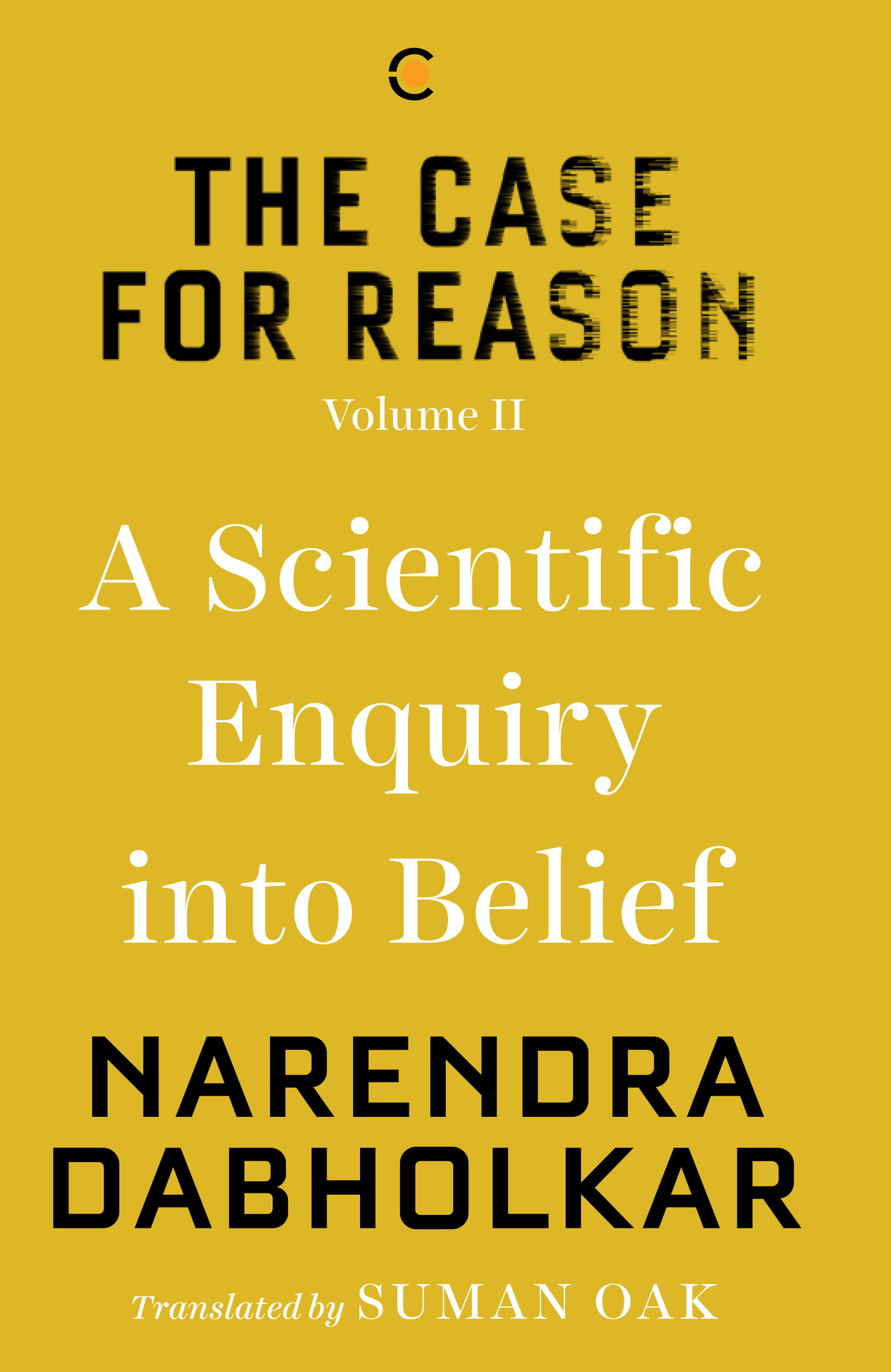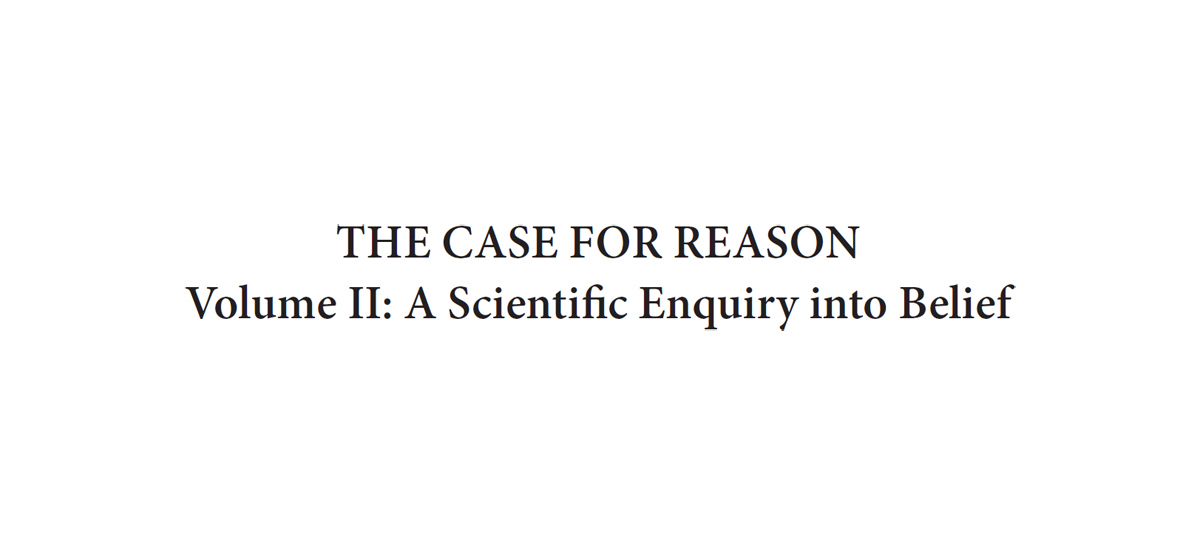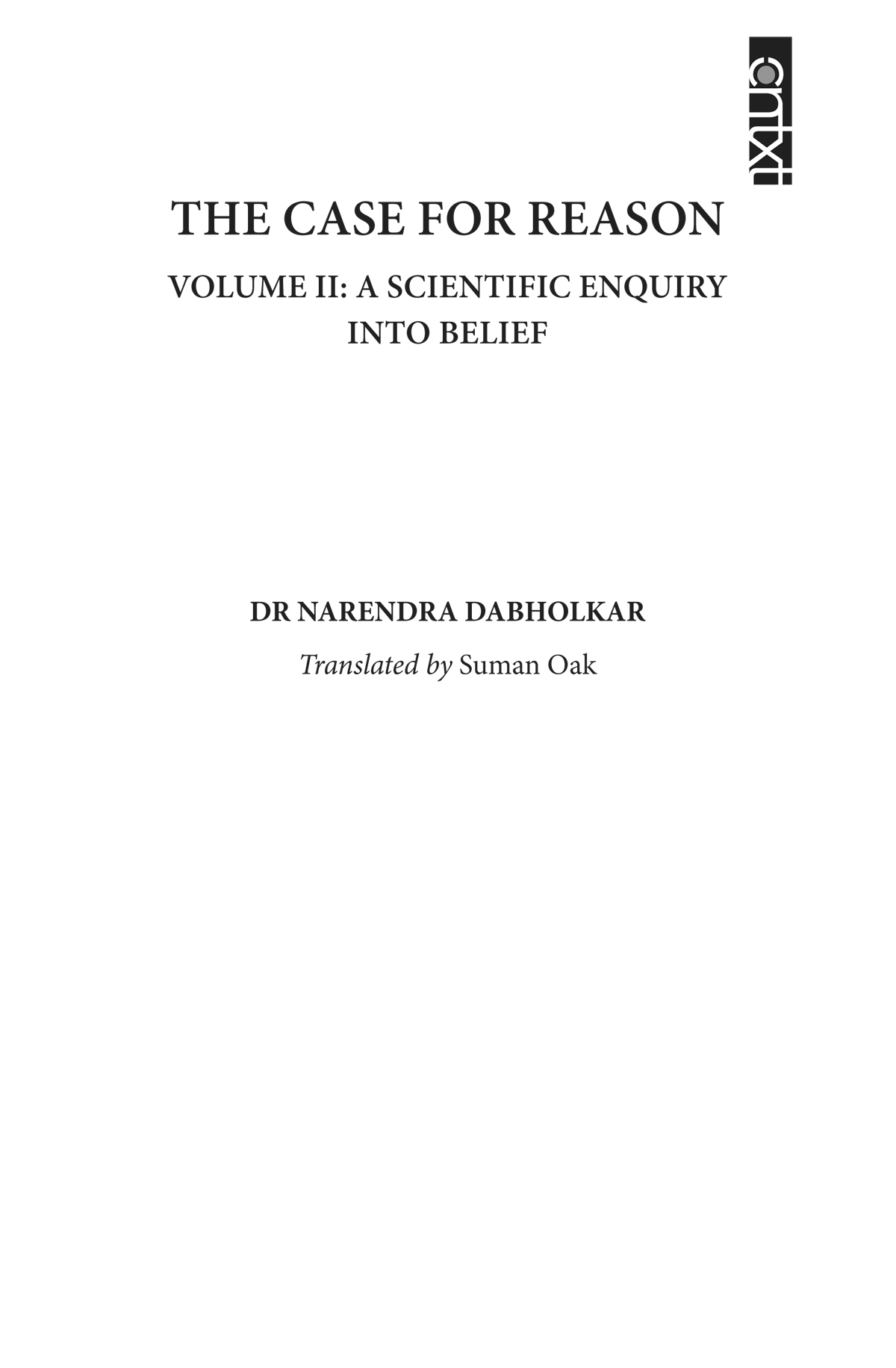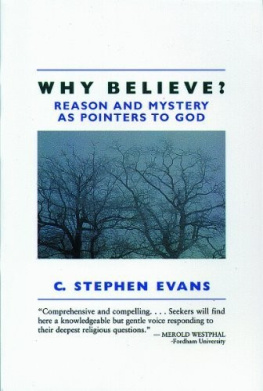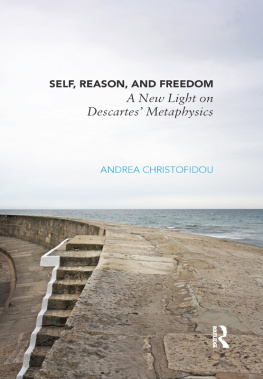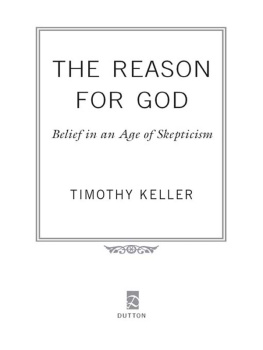First published in Marathi by Rajhans Prakashan, 2010
First published by Context, an imprint of Westland Publications Private Limited, in 2019
61, 2nd Floor, Silverline Building, Alapakkam Main Road, Maduravoyal, Chennai 600095
Context, the Context logo, Westland and the Westland logo, are the trademarks of Westland Publications Private Limited, or its affiliates.
Copyright Shaila Dabholkar, 2019
Translation Copyright Suman Oak, 2019
ISBN: 9789387894112
The views and opinions expressed in this work are the authors own and the facts are as reported by him, and the publisher is in no way liable for the same.
All rights reserved
No part of this book may be reproduced, or stored in a retrieval system, or transmitted in any form or by any means, electronic, mechanical, photocopying, recording, or otherwise, without express written permission of the publisher.
Many an intellectual discussion involving rationalists has seen plenty of heterodoxies. A lot of these pertain to issues such as god, religion, spirituality and secularism. In this book, I attempt to express ideas that took shape from my own experiences and reflection. I do not claim that this is the official manifesto of the Andhashraddha Nirmoolan Samiti (ANiS). But I can assert that members of its working committee are contemplating these views. (They do seem to agree with my articles in Warta Patra , ANiSs monthly magazine, on some of the topics dealt with here.)
The discussion on how to grasp the concept of god and the role of religion in human history drives ANiSs movements. So does the exposition on Faith and Superstition and My Understanding of Spirituality. Maharashtras social reformers would be the subject of a vast tome by themselves. Their thoughts on education, agriculture, governance, technology, etc. have effected change in some measure. But society has been more or less apathetic to their take on rationalism and superstition. I have tried to compile a coherent presentation of these observations of mine. See the chapter on Social Reformers of Maharashtra and the Eradication of Superstition.
I invite the reader to critique my views on secularism. Over the years, social reformers have investigated religion in a constructive way. Many of them have interpreted it as the opposite of vivek jagar, which means awakening the faculty of discernment among people. So, will such an awakening provide a footing for the propagation of secularism? Society should engage in a positive dialogue over this question. At ANiS, we arent interested in vocal discourses on rationalism. What we want is to see whether we can, by sharpening our reasoning and morality, help the world around us.
Long before the advent of human beings, the animal kingdom was already established on Earth. The application of simple logic shows us that these creatures were unlikely to have any concept of god. Then came monkeys and apes, followed by the forest man. Early man neither developed any language nor harboured any notion of a higher power.
In the due course of evolution, a process of production-based labour and cooperation evolved among humans. Then came the birth of language, the formation of various ideas and an increase in knowledge. Even then, there was no concept of god.
Therefore, based on the evidence, the origin of the concept of god dates back to 10,000 years at most. Anthropologists believe the idea originated with the dissolution of primitive nomadic society. With general advancement in material circumstances, perhaps mans desires and egotism expanded as well. These must have sowed the seeds in his mind for the development of the idea of god. One thing is for sure: all notions of god and all the gods we know are a product of mans brain. Man also decided how these gods were and werent supposed to behave. Using his imagination, he has created a world of his ownquite distinct from those of animals.
Man then went on to discover and invent new things. His aim behind this was to ensure his own progress, stability, peace and happiness. The concept of god and its inception is an outcome of this effort. Man tested his creations on himself, and these included his experiments with the concept of god as well. He examined it several times in various ways. In the process, he has wasted a lot of time and energy. Some people think it wasnt at all a wastethat these god experiments have benefited mankind a lot. There is also a group of people who think that this was not a very productive investment. Which of these opinions you support depends on the way you define the concept of god.
Nature has bestowed two appetites on man. The first is his hunger for food, the other is his sex drive. Satisfying these appetites ensured self-protection and the preservation of the human race. These purposes exist even today and will continue to do so forever. Meanwhile, man has invented a third appetitethe need for knowledge. In his efforts to meet it, he has created a world of his own. The concept of god was born out of this mindset of intellectual experimentation. Indeed, it is the loftiest manifestation of human genius. Based on it, man established ideas of piety, stability and safety. But soon, the concept of god enslaved him.
If god did exist, there should have been only one single god for the whole world. Ishwar, Allah, the Father in Heaven shouldnt have been more than one entity. All great souls who experienced divine visions should have seen the same god. But their visions are different, so is the knowledge they received. Thats because the images and thoughts of these visionaries stem from their own selves, not outside. These awakened beings must have searched for god in their minds, not out in the world. Their distinct intellects and acquired knowledge would have caused them to have disparate visions. They went on to propagate their learnings for the benefit of mankind. But man, who is like a speck in this unfathomable, gigantic expanse of the universe, felt awed and confused. He must have sought refuge in the omnipotent god of his own imagination to calm his troubled mind.
In India, it was once thought that the assumption of divine creation is no great sign of intelligence. Dharmakirti was a great philosopher and a principal at Nalanda University. According to him, three beliefs were the main characteristics of stupidity: 1) That god made the universe, 2) The Vedas are valid, 3) That you can wipe away your sins with bathing, fasting and penance. One cannot prove gods existence using rational arguments. The truth is that we want god to exist. Thats why many of us are willing to accept faulty logic to prove his existence. Vaman Malhar Joshi offered this pertinent quote in his book Neeti Shastra Pravesh . (The title means Introduction to Ethics.) Society can develop confidence in its own ability, but people need to understand one thing. Ram, Krishna, Buddha, Mahavir, Jesus Christ, Muhammad, Basaveshwar and Guru Nanak were all heroes. Their thoughts and deeds form the epitome of human valour, wisdom and maturity. But they werent gods. Whether their deification is benevolent or malevolent is, of course, debatable.

